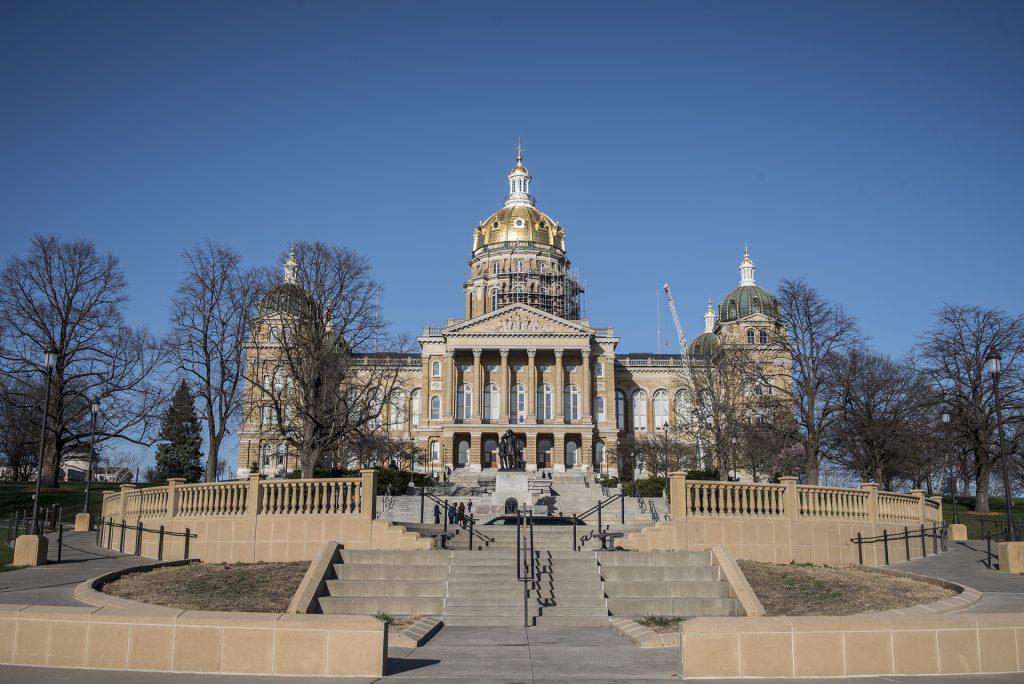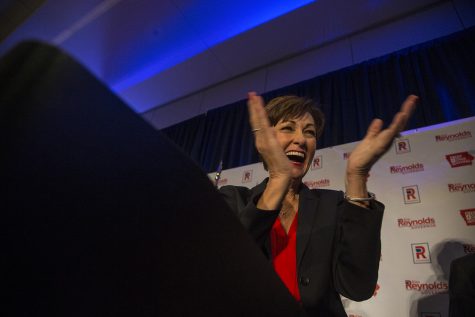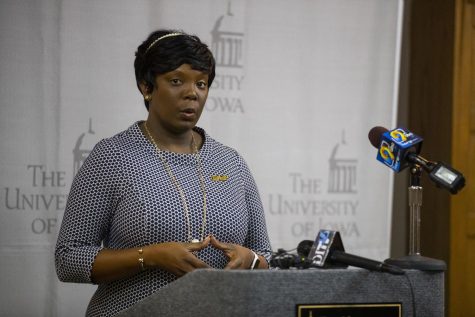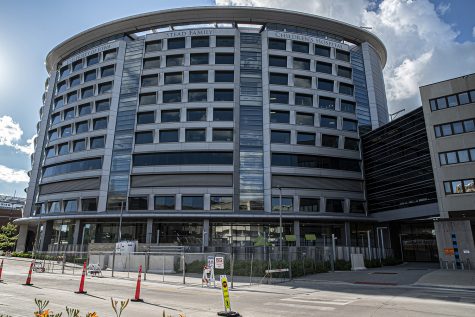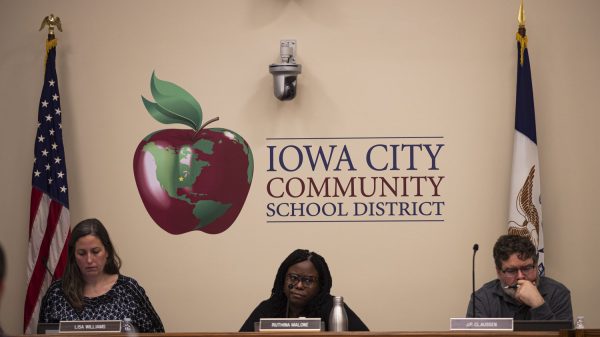Budget estimates decrease slightly, surplus on horizon
A state agency on Thursday released revised estimates for 2019 and 2020 revenue projections, decreasing them slightly.
The Capitol building in Des Moines is pictured on April 29, 2019.
December 14, 2018
The state budget will have slightly less revenue in 2019 than was previously predicted, a state agency projected on Thursday.
However, with nearly 5 percent growth in revenue compared with the previous fiscal year, the state will have $275 million left over after enacting the predicted fiscal 2019 budget, according to the Revenue Estimating Conference’s quarterly meeting on Thursday.
“I’m cautiously optimistic that we’ll be able to meet our budget needs and we won’t have to have a de-appropriations bill this year, so that’ll be a nice change from the past two years,” said Sen. Michael Breitbach, R-Strawberry Point, the chair of the state Senate Appropriations Committee, which works on allocating money to state-funded agencies and organizations.
The state is expected to take in $7.6187 billion in revenue for 2019, legislative services projected Thursday. That number fell $13.5 million from October estimates, but was still an increase of $88.2 million from March projections.
RELATED: Kim Reynolds wins becoming Iowa’s first elected female governor
Although Thursday’s revenue numbers were lower than October’s, Breitbach said, he doesn’t think lawmakers would have to repeat midyear budget cuts lawmakers made the past two years to make up for revenue shortfalls.
In 2018, state appropriations decreased by a net $23.3 million as state revenue failed to meet projections that guided the creation of that year’s budget. The University of Iowa and Iowa State University shared $10.9 million of cuts, but by sessions’ end, $8.6 million was restored, leaving 2.6 million unfunded.
The budget will still grow by about 4.7 percent when comparing fiscal 2018 with fiscal 2019, Thursday’s report estimated, which translates to an increase of approximately $380 million. The $275 million surplus in 2019 was estimated after taking into account an extra $64.3 million to pay for updated contracts with Medicaid managed-care organizations.
In the panel’s last estimates, it predicted the budget would grow by 4.9 percent from fiscal 2018 to $7.6061 billion.
In 2020, however, the panel predicted a slow in revenue growth, estimating a 1.9 percent increase in revenue.
The Iowa budget closed fiscal 2018 with $7.26 billion in revenue, an increase of 4.3 percent from the previous year.
The state also closed that fiscal year with a $127 million budget surplus, approximately $90 million more left over than the panel had projected in March that the state’s budget would finish with. Reynolds touted the surplus on the campaign trail as a result of her sound fiscal management.
Democrats, on the other hand, contended the surplus was money left over after midyear budget cuts that could be reallocated to state services.
The end-of-the-fiscal-year surplus also came after federal taxes were lowered, automatically raising state income taxes because of a soon-moot provision in Iowa law that allowed Iowans to deduct federal taxes from state taxes.
That is part of the reason revenue growth is projected to slow after 2020, Breitbach said. Because of the expected revenue slow down, he said, he was cautious about adding money to the budget.
RELATED: Iowa gubernatorial candidates spar over state budget, Medicaid, economy, health care.
“A lot of times when you increase a budget … there’s going to be a need the next year that is going to need to be filled,” he said. “So, you’ve got to cautiously move forward.”
Breitbach said that if the $275 million estimated for 2019 wasn’t used, it would fill the cash reserves funds until those accounts were full, and the rest would likely roll over to the next year’s budget.
Sen. Joe Bolkcom, D-Iowa City, the ranking member on the Senate Appropriations Committee, called Thursday’s updated budget numbers “lackluster.”
“The result is that the governor and the Republican-controlled Legislature will continue to make job training and higher education unaffordable for thousands of Iowans, to reduce protections for seniors and other vulnerable Iowans, and to make health care less accessible for thousands of Iowans for the next two years,” Bolkcom said.



